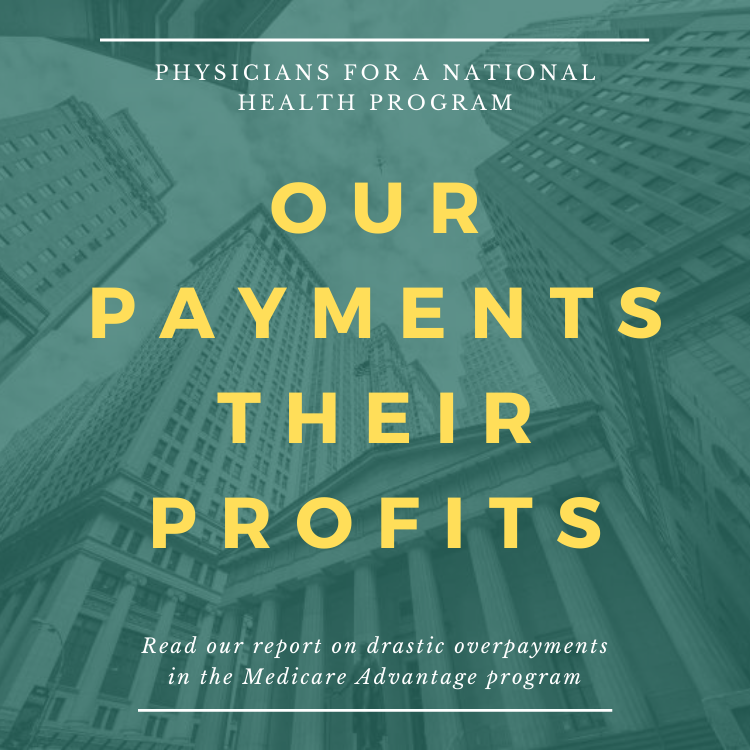Summary: US hospitals use aggressive business models (mergers, high prices, & marketing of lucrative services) to drive up revenues. For-profit hospitals benefit investors, but even not-for-profits act similarly, with huge financial rewards for participants. Single payer’s hospital global budgeting would remove these perverse incentives.
Hospital Billing Is a Crime Against American Patients, The American Prospect, November 22, 2022, by Robert Kuttner
Most hospitals in the U.S. are either for-profits, or nominal nonprofits like large teaching hospitals that behave just like for-profits. Their goal is to maximize market share, particularly for the most lucrative specialized procedures. That means they spend a great deal of capital, not just on acquisitions but on construction of new facilities (that may be redundant in many cities) and on new costly equipment.
U.S. hospitals have triple the capital costs of Europe’s hospitals. Meanwhile, every major European nation not only spends far less on health care but has much better outcomes in terms of every major health indicator.
Medicare could save taxpayers a lot of money. Why are they so timid? Because hospitals in many areas are the largest and most politically powerful local employers, even more so when they are teaching hospitals connected to universities.
One of the many regulatory failures of antitrust in the U.S. is the nearly complete failure to challenge hospital mergers and acquisitions, which have created monopoly power and degraded services in city after city. Even worse, many of these merger binges are by hospital systems that are nominal nonprofits.
There is no direct price regulation in the U.S., so hospitals are free to charge what they think the market will bear.
Hospitals also overuse specialists, who can bill at higher rates.
Executive pay is also exorbitant.
A variety of market-friendly techniques were devised to contain costs. Hospitals proved expert at gaming all of them.
Until recently, advocates of single-payer health care have focused on comprehensive coverage but less so on the abuses of profit-maximizing medicine. If we went to Medicare for All but did not reform these billing practices and did not end the system of profit-maximizing medicine entirely, these excess costs would simply be piled onto taxpayers.
Rep. Pramila Jayapal’s current Medicare for All bill does best at addressing these abuses, and Bernie Sanders’s latest version is more attuned to them than his earlier bills.
Under Jayapal’s bill, co-sponsored by about half of the House Democratic caucus, the system would keep some elements of fee-for-service medicine and diagnosis-related coding, but hospitals would operate under “global” budgets. That is, they would receive an annual flat sum from the government that would be adjusted regularly to reflect caseloads. Medical education—one of the ways that teaching hospitals pad bills—would be its own separate budget item. Capital outlays and staffing ratios would be regulated. Incentive compensation aimed at gaming the system would be prohibited. There would be much greater emphasis on primary care.
This legislation, which merely reflects common practices in most European nations, is at the outer fringe of what is even debated in the U.S. It is a reminder of how inefficient as well as unjust is market-led medicine, and how incremental reforms can never repair our broken health system.
Comment:
By Don McCanne, M.D.
Although we have the most expensive health care system in the world, it performs very poorly by international standards. We have far too many who are uninsured or underinsured and thus suffer financial hardship, and our system has too many features designed to direct health care dollars to the wealthy rather than to the patients where the need is so great. This article by Robert Kuttner demonstrates that another defect is in one of the most basic elements of our health care system: our hospitals!
Hospitals have not escaped much of the fragmented and dysfunctional design defects that characterize our health care system. As a glaring example, our nominally nonprofit hospitals, which should be dedicated to providing health care to the most needy, frequently engage in activities that make the rich (e.g., prodigiously paid CEOs and procedural specialists) richer as unmet community care needs should make us cry out for universal insurance.
Yet where are our reform activities directed? Our current government, which is supposedly more progressive than the alternative, has been busy converting our public Medicare program into private insurance plans, via heavily marketed but optional Medicare Advantage and now involuntary Direct Contracting through the REACH program. Meantime, ownership of the actual health delivery system is passing to private investors through private equity and other innovative business constructs designed to siphon off the massive pool of health care dollars that we have but are not using in the high performance system that our nation deserves.
What is wrong with us? For decades we have known that a well-designed single payer system, using an improved version of Medicare, would serve all of us well. As we have stalled and deferred, allowing inadequate, dysfunctional, incremental measures to substitute for reform, we have allowed our health care system to feed the injustice of wealth inequities such that we now have a much greater legislative problem than merely establishing a universal public health insurance program.
That makes it all the more urgent to act now. The shift of wealth to the top is a rapidly accelerating process. We are not talking about some vague population in the future. We are talking about our grandchildren and even our children. Look around at the medical needs that our aging friends face. How can we be so callous as to not ensure that those needs will be met for all of us in the future. Now is when we have to act! Dammit, now!
http://healthjusticemonitor.org…
Stay informed! Subscribe to the McCanne Health Justice Monitor to receive regular policy updates via email, and be sure to follow them on Twitter @HealthJustMon.
